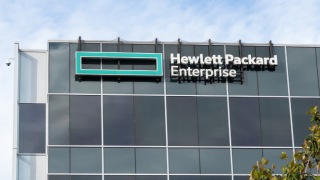PT Telekomunikasi Indonesia, or Telkom Indonesia, is the incumbent operator, with a number of subsidiaries in the country including Telin and Telkomsel; the latter of which has maintained a strong presence in Indonesia despite increased competition from secondary operators XL Axiata and Indosat.
The country as a whole has been placing a heavy focus on expanding and upgrading its infrastructure over the past 12 months, and although it is yet to implement commercial LTE services, operators are acting on the evident demand for connectivity and, more notably, data. Demand for data has been growing at a steady pace worldwide and Indonesia is no exception. Telcos across the country – including Telkom Indonesia, Telkomsel and telecoms tower provider Sarana Menara Nusantara (SMN) – have been cashing in on high-speed network upgrades and expansions in a bid to manage these demands.
In January this year, Telkomsel upgraded its nationwide 3G network in partnership with Finnish vendor Nokia Solutions and Networks (NSN). The upgrade was intended to deliver higher-quality voice and data services, as well as better network capacity, speed and coverage for Telkomsel customers. It followed an LTE trial in Bali, Indonesia, late last year, which demonstrated speeds of 70Mbps on the 1800MHz GSM band. The company is working on its commercial launch of LTE services, predicted for later this year, and as well as developing its network and presence in the country, Telkomsel is looking to enhance its offering with the inclusion of machine-to-machine (M2M) services.
Last December, Telkomsel partnered with US-based M2M specialist Jasper Wireless for the delivery of M2M connectivity to enterprises in Indonesia. The deal followed a similar agreement between XL Axiata and Ericsson earlier last year for M2M services and Alfian Manullang, GM for business development at Telkomsel, says that the Indonesian economy is becoming increasingly reliant on such advanced global technology.
It seems international investors are also starting to take note of these opportunities in Indonesia, particularly Telstra, which signed a memorandum of understanding (MoU) with Telkom Indonesia in January 2014. The MoU was non-binding, but promotes the aim of creating a joint venture in south east Asia to deliver network services to the region.
Terms of the agreement state that the joint venture will be sole provider of network applications and services (NAS) in Indonesia for both Telkom Indonesia and Telstra.
“Indonesia is a fast-growing NAS market and we believe the best way to make inroads is by partnering with a well-recognised and respected local carrier,” says Brendon Riley, group executive of global enterprise and services at Telstra.
As well as strengthening its international bonds, Telkom Indonesia has been upgrading its regional submarine cable architecture and in March, upgraded the PT Telkom 3rd Route Submarine Cable in partnership with Huawei Marine Cable. The PT Telkom 3rd Route is one of three existing routes providing capacity for growth in Asia-Pacific region, and the upgrade has enabled the implementation of eight additional 100G channels, as well as 800Gbps of capacity.
Despite evident potential in the market, analysts believe Indonesia has a number of challenges to overcome before it can really become a contender in the global telecoms market.
“Two of the more significant challenges are the crowded operator market, especially the mobile segment, and the slow rate of implementing regulatory decisions,” a report from analyst firm BuddeComm reads. “At the same time, on a broader front, there is no avoiding the fact that Indonesia must also continue to deal with a range of social, political and economic issues that have proved problematic over the years.”
Corruption and government bureaucracy have long been factors deterring potential investors – with the risk of political insecurity also looming in the background – but it is now hoped to have reached a level of stability.




